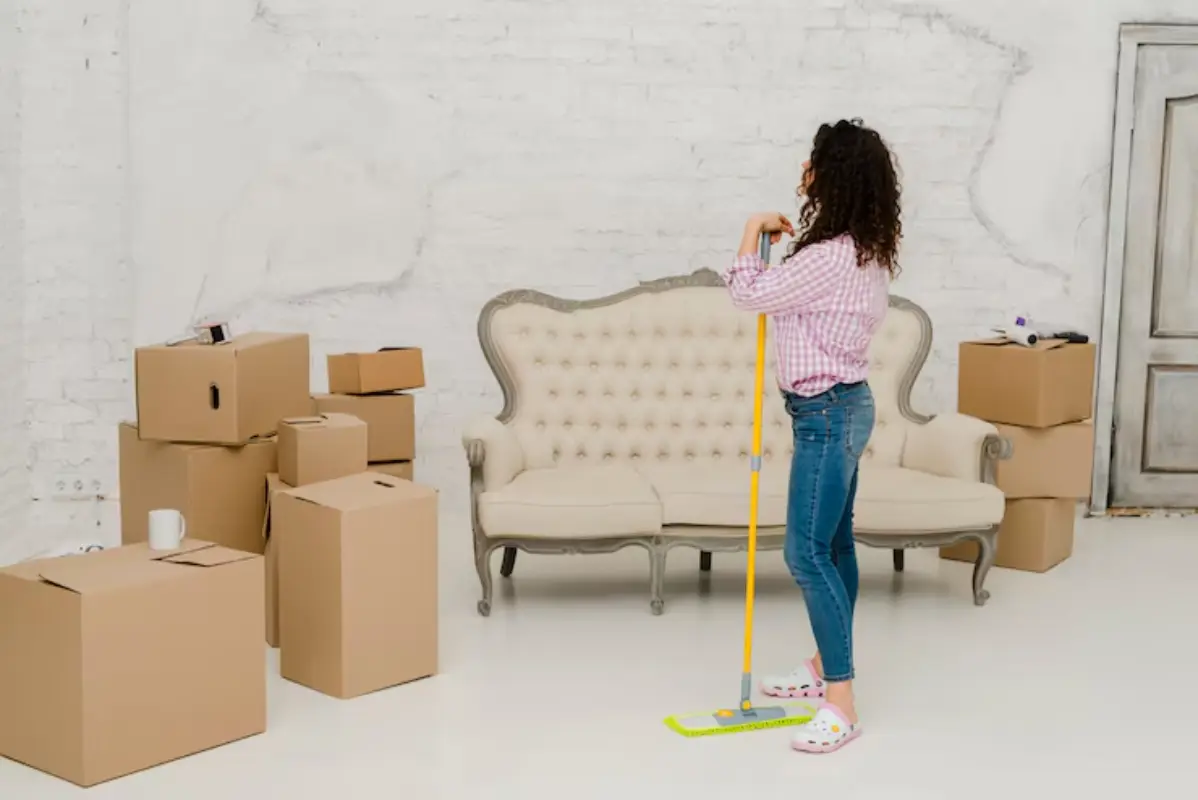Creative Ways to Declutter Your Home: Simple and Sustainable Approaches
Decluttering your home is more than just clearing out space—it’s about creating an environment that nurtures well-being and efficiency. A clutter-free space can transform how you experience your home, making daily routines more enjoyable and fostering a sense of tranquility. The journey to a tidier home is rife with opportunities to assess what truly adds value to your life.
In the hustle and bustle of today’s world, professional assistance, such as a reliable service, can facilitate decluttering, ensuring that unwanted items are managed responsibly, thus easing the burden on your time and mental clarity.
Contents
The Psychological Benefits of a Clutter-Free Home
It’s well-documented that physical clutter can lead to mental clutter, affecting everything from mood to cognitive function. A study by UCLA’s Center on Everyday Lives and Families highlights that clutter can elevate stress hormones, particularly in women. This constant visual reminder of disorganization can hinder your ability to relax and unwind.
Conversely, a neat and organized home cultivates a peaceful mindset, enhancing your ability to think clearly and creatively. Having everything organized makes it easier to make decisions and allows you to concentrate more on the things that are important to you, such as cooking or working on a creative project.
Steps to Decluttering: Where to Start
It’s essential to approach the task systematically to kick-start your decluttering journey. Start by establishing reasonable objectives for every area of your house and dividing the more complex work into manageable tasks. This might mean dedicating an afternoon to sorting through your wardrobe or a weekend to tackling the attic. Utilize the “four-box method” by dividing your sorting into categories: keep, donate, sell, and throw away.
This practical system allows you to evaluate each item’s necessity and fosters a more straightforward decluttering process. Over time, as you begin to see the physical results of your efforts, you’ll find motivation in the newfound space and order. Consistency is key, and each small step contributes significantly to your overall progress.
Adopting a Minimalist Mindset
Embracing a minimalist lifestyle doesn’t mean sacrificing style or comfort; it means prioritizing quality over quantity and focusing on what truly matters. This shift in mindset can reduce the urge to accumulate unnecessary possessions and encourage a more intentional approach to living. By questioning the purpose and necessity of your belongings, you cultivate an environment filled only with items that bring joy or serve a practical function.
Minimalism extends beyond physical space to influence your daily decisions and interactions, encouraging mindfulness in consumption and promoting personal growth. By shifting resources from acquisition to enrichment, adopting this lifestyle can result in financial savings and welcome more meaningful experiences.
Organization Techniques for Every Room
Each room in your home has unique challenges and opportunities for organization. In the kitchen, for instance, eliminate clutter by installing open shelves or magnetic strips for utensils, making frequently used items easily accessible. Bedrooms benefit from optimized closet spaces—consider using double hanging rods and cubbies for shoes and accessories. Choose storage-functional furniture for living spaces, such as coffee tables with drawers or couches with concealed pockets, to keep essentials handy but out of sight.
To preserve a neat and practical appearance, even bathrooms, which are sometimes overlooked in decluttering initiatives, can be spruced up with ladder shelves or stackable bins to hold towels and personal care items. Customizing your organization’s strategies to fit the needs of each room fosters a practical and individual approach to decluttering.
Sustainable Disposal Methods
Amidst the decluttering process, it is vital to dispose of items responsibly to minimize environmental impact. Not all unwanted items are destined for landfills; many can find new life through recycling or donation. Investigate your local recycling capabilities for electronics, plastics, and metals to ensure they are processed correctly.
Furthermore, consider the potential value your discarded items can bring to others; clothing, furniture, and other household goods can be donated to charities, extending their life cycle and supporting community needs. Engaging in recycling initiatives not only aids in environmental conservation but also reinforces a responsible and ethical approach to decluttering, encouraging a culture of reuse and sustainability.
Creative Upcycling Ideas
Before discarding items deemed junk, tap into your creative spirit and explore the countless possibilities of upcycling. This eco-friendly practice transforms unused items into functional or decorative pieces, giving them a second life. Consider converting old frames into jewelry holders, using vintage suitcases as unique side tables, or crafting unused glass jars into small garden planters.
Websites and workshops abound with ingenious upcycling ideas, ready to inspire and guide your projects. Such creativity reduces waste and results in personalized decor and gifts, each with a story and purpose. Through the imaginative reuse of objects, you contribute positively to the environment while adding character and individuality to your home.
Long-Term Maintenance Tips
Achieving a clutter-free home requires ongoing commitment and conscious effort to maintain order. Routine check-ins, whether weekly, monthly, or seasonal, can prevent the gradual accumulation of clutter. Implement practices like the “one in, one out” rule for clothing and household purchases, ensuring that every new item acquired has a designated space and does not upset the existing balance. Encouraging family members to participate in maintaining order by assigning age-appropriate tasks helps distribute responsibility, fostering a shared commitment to a clean living environment.
Mindful consumption, supported by a conscious shopping mentality, reduces impulse buying and aligns your purchases with your values, ensuring that new additions to your home are meaningful and necessary. By cultivating these habits, you can enjoy a harmonious and organized home, where everything has its place and your well-being remains the focus.

